#Children health insurance program
Text
The Children's Health Insurance Program

The CHIP Program provides low-cost or free health coverage to eligible children in families with incomes too high to qualify for Medicaid but cannot afford private insurance. CHIP benefits vary by state but typically include doctor visits, dental and vision care, prescription medications, and immunizations. Administered jointly by federal and state governments, CHIP aims to ensure access to essential healthcare services for children from low-income families.
0 notes
Text
Why Chips Health Insurance PA Is The Ultimate Choice For Your Family's Health?

CHIP's health insurance in PA offers comprehensive coverage, affordability, and flexibility, ensuring your family's health needs are met. With no pre-existing condition exclusions, easy enrollment, and support services, CHIP provides peace of mind. It's the ultimate choice for families, offering essential healthcare coverage for children, regardless of financial constraints or medical history.
0 notes
Text
Efforts to vet applicants and prevent fraud are keeping eligible people from accessing government assistance.
0 notes
Text
Compare CHIP With Other Health Insurance Programs

The Children's Health Insurance Program (CHIP) plays a distinct and vital role in the landscape of health insurance, catering specifically to the needs of children from low to moderate-income households. While there are similarities with other health insurance programs, such as Medicaid and private insurance, CHIP stands out in several key aspects.
Target Population:
CHIP: Primarily focused on providing health coverage for children up to the age of 19 in families with incomes too high to qualify for Medicaid but facing financial barriers to obtaining private insurance.
Medicaid: Offers health coverage for individuals and families with low income, including children, pregnant women, and adults, with eligibility determined by income and other factors.
Private Insurance: Available for individuals and families through various plans offered by private insurers, often with coverage options for children but requiring premium payments.
Income Eligibility:
CHIP: Targets families with incomes above Medicaid thresholds but still within the low to moderate-income range, varying by state.
Medicaid: Primarily for those with very low incomes, with eligibility determined by income relative to the federal poverty level (FPL).
Private Insurance: Open to individuals and families across income levels, with premium costs varying based on the plan and coverage.
Flexibility and State Control:
CHIP: Provides states with flexibility in program design, allowing them to tailor their CHIP programs to the unique needs and demographics of their population.
Medicaid: Jointly funded by the federal and state governments, with states having some flexibility in program design but adhering to federal guidelines.
Private Insurance: Governed by state and federal regulations but lacks the state-specific customization seen in CHIP and Medicaid.
Coverage Benefits:
CHIP: Comprehensive coverage for essential health services, including preventive care, immunizations, prescription medications, dental and vision care, mental health services, and specialty care.
Medicaid: Similar coverage to CHIP but may also include additional benefits specific to the Medicaid program, such as long-term care services.
Private Insurance: Coverage varies widely based on the specific plan but generally includes a range of services, with the potential for more extensive coverage options.
Cost-sharing and Affordability:
CHIP: Typically involves low or no-cost sharing for eligible families, ensuring affordability for those with limited financial means.
Medicaid: This may include minimal or no-cost sharing for eligible individuals, with some states implementing nominal premiums or copayments.
Private Insurance: Involves premium payments, deductibles, and copayments, which can vary widely based on the specific plan and coverage level.
Outreach and Enrollment:
CHIP: Often involves targeted outreach and education efforts to reach eligible families, with enrollment facilitated through state health insurance marketplaces.
Medicaid: Similar outreach strategies as CHIP, with enrollment through state-specific processes, including health insurance marketplaces.
Private Insurance: Relies on marketing efforts by private insurers, brokers, and employers, with enrollment through various channels, including employer-sponsored plans, individual marketplaces, or government exchanges.
Preventive and Early Intervention Focus:
CHIP: Emphasizes preventive care and early intervention, recognizing the importance of addressing health issues in children at an early stage.
Medicaid: Also places importance on preventive care, with a broader focus on meeting the healthcare needs of low-income individuals of all ages.
Private Insurance: This may include preventive care services but often places a greater emphasis on a broader range of healthcare needs for individuals and families.
In conclusion, while CHIP shares commonalities with Medicaid and private insurance in providing healthcare coverage, it stands out as a program uniquely designed to address the specific needs of children from low to moderate-income families. The targeted focus on pediatric care, state flexibility, and affordability measures make CHIP a crucial component in the effort to ensure comprehensive health coverage for children across the United States.
0 notes
Text
30 States Temporarily Pause Disenrollments from Medicaid and CHIP Programs
The U.S. Department of Health and Human Services has mandated a temporary pause on disenrollments from Medicaid and CHIP programs in response to a glitch. Nearly 500,000 beneficiaries will regain their insurance coverage as a result.
#headline horizon#news#latest news#Medicaid glitch#Children's Health Insurance Program#healthcare coverage
1 note
·
View note
Video
youtube
Let's talk about Medicaid and what to do if you're now ineligible....
You may become ineligible for Medicaid, but your children may still qualify. You need to check.
0 notes
Text
Things Biden and the Democrats did, this week #7
Feb 23-March 1 2024
The White House announced $1.7 Billion in new commitments from local governments, health care systems, charities, business and non-profits as part of the White House Challenge to End Hunger and Build Healthy Communities. The Challenge was launched with 8 billion dollars in 2022 with the goal of ending hunger in America by 2030. The Challenge also seeks to drastically reduce diet-related diseases (like type 2 diabetes). As part of the new commitments 16 city pledged to make plans to end hunger by 2030, the largest insurance company in North Carolina made nutrition coaching and a healthy food delivery program a standard benefit for members, and since the challenge launched the USDA's Summer EBT program has allowed 37 states to feed children over the summer, its expected 21 million low income kids will use the program this summer.
The US House passed a bill on Nuclear energy representing the first update in US nuclear energy policy in decades, it expands the Nuclear Regulatory Commission and reduces reducing licensing fees. Nuclear power represents America's single largest source of clean energy, with almost half of carbon-free electricity coming from it. This bill will boost the industry and make it easier to build new plants
Vice President Harris announced key changes to the Child Care & Development Block Grant (CCDBG) program. The CCDBG supports the families of a million American children every month to help afford child care. The new changes include capping the co-pay families pay to no more than 7% of their income. Studies show that high income families pay 6-8% of their income in childcare while low income families pay 31%. The cap will reduce or eliminate fees for 100,000 families saving them an average of over $200 a month. The changes also strength payments to childcare providers insuring prompt payment.
The House passed a bill making changes to the Small Business Administration’s 8(a) program. The 8(a) is an intensive 9 year program that offers wide ranging training and support to small business owners who are socially and economically disadvantaged, predominantly native owned businesses. Under the current structure once a business reaches over 6.8 million in assets they're kicked off the program, even though the SBA counts anything under $10 million as a small business, many companies try to limit growth to stay on the program. The House also passed a bill to create an Office of Native American Affairs at the SBA, in order to support Native-owned small businesses.
The White House and HUD announced steps to boost the housing supply and lower costs plans include making permanent the Federal Financing Bank Risk Sharing program, the program has created 12,000 affordable housing units since 2021 with $2 billion and plans 38,000 additional units over ten years. As well as support for HUD's HOME program which has spent $4.35 billion since 2021 to build affordable rental homes and make home ownership a reality for Americans. For the first time an administration is making funds available specifically for investments in manufactured housing, $225 million. 20 million Americans live in manufactured housing, the largest form of unsubsidized affordable housing in the country, particularly the rural poor and people in tribal communities.
The Department of Energy announced $336 million in investments in rural and remote communities to lower energy costs and improve reliability. The projects represent communities in 20 states and across 30 Native tribes. 21% of Navajo Nation homes and 35% of Hopi Indian Tribe homes remain unelectrified, one of the projects hopes to bring that number to 0. Another project supports replacing a hydroelectric dam in Alaska replacing all the Chignik Bay Tribal Council's diesel power with clear hydro power. The DoE also announced $18 million for Transformative Energy projects lead by tribal or local governments and $25 million for Tribal clean energy projects, this comes on top of $75 million in Tribal clean energy projects in 2023
Transportation Secretary Pete Buttigieg put forward new rules to ensure airline passengers who use wheelchairs can travel safely and with dignity. Under the planned rules mishandling a wheelchair would be a violation of the ACAA, airlines would be required to immediately notify the passenger of their rights. Airlines would be required to repair or replace the wheelchair at the preferred vendor of the passenger's choice as well as provide a loaner wheelchair that fits the passenger's needs/requirements
The EPA launched a $3 Billion dollar program to help ports become zero-emission. This investment in green tech and zero-emission will help important transportation hubs fight climate change and replace some of the largest concentrations of diesel powered heavy equipment in America.
the EPA announced $1 Billion dollars to help clean up toxic Superfund sites. This is the last of $3.5 billion the Biden administration has invested in cleaning up toxic waste sites known as Superfund sites. This investment will help finish clean up at 85 sites across the country as well as start clean up at 25 new sites. Many Superfund sites are contained and then left not cleaned for years even decades. Thanks to the Biden-Harris team's investment the EPA has been able to do more clean up of Superfund sites in the last 2 years than the 5 years before it. More than 25% of America's black and hispanic population live with-in 5 miles of a Superfund site.
Bonus: Sweden cleared the final major barrier to become NATO's 32nd member. The Swedish Foreign Minster is expected to fly to Washington to deposit the articles of accession at the US State Department. NATO membership for Sweden and its neighbor Finland (joined last year) has been a major foreign policy goal of President Biden in the face of Russian aggressive against Ukraine. Former President Trump has repeatedly attacked NATO and declared he wants to leave the 75 year old Alliance, even going so far as to tell Russia to "do whatever the hell they want" with European NATO allies
#Thanks Biden#Joe Biden#Politics#US politics#Democrats#Climate change#end hunger#hunger#proverty#disability#native Americans#tribal rights#clean energy#child care#housing#housing crisis
765 notes
·
View notes
Text
Flint, Michigan, has one of the [United States]'s highest rates of child poverty — something that got a lot of attention during the city's lead water crisis a decade ago. And a pediatrician who helped expose that lead problem has now launched a first-of-its-kind move to tackle poverty: giving every new mother $7,500 in cash aid over a year.
A baby's first year is crucial for development. It's also a time of peak poverty.
Flint's new cash transfer program, Rx Kids, starts during pregnancy. The first payment is $1,500 to encourage prenatal care. After delivery, mothers will get $500 a month over the baby's first year.
"What happens in that first year of life can really portend your entire life course trajectory. Your brain literally doubles in size in the first 12 months," says Hanna-Attisha, who's also a public health professor at Michigan State University.
A baby's birth is also a peak time for poverty. Being pregnant can force women to cut back hours or even lose a job. Then comes the double whammy cost of child care.
Research has found that stress from childhood poverty can harm a person's physical and mental health, brain development and performance in school. Infants and toddlers are more likely than older children to be put into foster care, for reasons that advocates say conflate neglect with poverty.
In Flint, where the child poverty rate is more than 50%, Hanna-Attisha says new moms are in a bind. "We just had a baby miss their 4-day-old appointment because mom had to go back to work at four days," she says...
Benefits of Cash Aid
Studies have found such payments reduce financial hardship and food insecurity and improve mental and physical health for both mothers and children.
The U.S. got a short-lived taste of that in 2021. Congress temporarily expanded the child tax credit, boosting payments and also sending them to the poorest families who had been excluded because they didn't make enough to qualify for the credit. Research found that families mostly spent the money on basic needs. The bigger tax credit improved families' finances and briefly cut the country's child poverty rate nearly in half.
"We saw food hardship dropped to the lowest level ever," Shaefer says. "And we saw credit scores actually go to the highest that they'd ever been in at the end of 2021."
Critics worried that the expanded credit would lead people to work less, but there was little evidence of that. Some said they used the extra money for child care so they could go to work.
As cash assistance in Flint ramps up, Shaefer will be tracking not just its impact on financial well-being, but how it affects the roughly 1,200 babies born in the city each year.
"We're going to see if expectant moms route into prenatal care earlier," he says. "Are they able to go more? And then we'll be able to look at birth outcomes," including birth weight and neonatal intensive care unit (NICU) admissions.
Since the pandemic, dozens of cash aid pilots have popped up across the nation. But unlike them, Rx Kids is not limited to lower-income households. It's universal, which means every new mom will get the same amount of money. "You pit people against each other when you draw that line in the sand and say, 'You don't need this, and you do,' " Shaefer says. It can also stigmatize families who get the aid, he says, as happened with traditional welfare...
So far, there's more than $43 million to keep the program going for three years. Funders include foundations, health insurance companies and the state of Michigan, which allocated a small part of its federal cash aid, known as Temporary Assistance for Needy Families.
Money can buy more time for bonding with a baby
Alana Turner can't believe her luck with Flint's new cash benefits. "I was just shocked because of the timing of it all," she says.
Turner is due soon with her second child, a girl. She lives with her aunt and her 4-year-old son, Ace. After he was born, her car broke down and she was seriously cash-strapped, negotiating over bill payments. This time, she hopes she won't have to choose between basic needs.
"Like, I shouldn't have to think about choosing between are the lights going to be on or am I going to make sure the car brakes are good," she says...
But since she'll be getting an unexpected $7,500 over the next year, Turner has a new goal. With her first child, she was back on the job in less than six weeks. Now, she hopes she'll be able to slow down and spend more time with her daughter.
"I don't want to sacrifice the time with my newborn like I had to for my son, if I don't have to," she says."
-via NPR, March 12, 2024
#united states#flint michigan#michigan#cash aid#basic income#poverty#poverty relief#child poverty#mothers#pregnancy#prenatalcare#healthcare#healthcare access#public health#child development#good news#hope
345 notes
·
View notes
Text
THIS ISN'T COMMON KNOWLEDGE BUT SHOULD BE...ABOUT MEDICAID....
If you ever find yourself in the position of living in the home of a parent who is disabled and requires full-time care and you are their primary caregiver for at least 2 years, and they intend to leave their assets to you after they pass, make sure to transfer ownership of their assets, home/land in your name ASAP...or they will require you to pay back any benefits received and claim those assets even out from under you, as soon as your loved one passes.
This is yet another way that generational assets /wealth are easily taken out of marginalized communities.
It is a loan.
And the sharks circle as soon as your loved one passes.
Here's an article about it:
Decided to add context.
I don't like to talk about it here, because ehh, social media is for my vapid entertainment thoughts for me.
It's a hobby/getaway/ place to get semi-social with strangers and online friends with shared interests, but I don't want anyone else to go through what I am... Of course, this applies specifically to the U.S.'s broken healthcare system.
So, for those who don't know, my mom passed recently. I am an only child with no siblings or children. My whole life during that time was 24/7 care.
She had insurance, but it wasn't enough to cover everything that she needed, so Medicaid was the obvious solution, right?
The government takes care of our disabled elderly who have worked until retirement, right?
It seemed like the routine thing to do, I had never heard anything during the process about having to pay it back,but sure enough, less than 12 weeks after her passing, I was hit with a warning (which I followed up on and was told I would NOT be charged because of my caregiver status) and then 2 weeks later the "bill".
The lady I spoke to, totally changed her attitude from the first time I spoke to her to the point where I felt scammed. Out came a patronizing voice certain people use with children, that measured whiny thing (it's always a red-flag to me and makes me instantly dislike you if you do this even with kids, btw... speak to kids like PEOPLE).
I feel like an idiot.
I have been doing this for over a decade and didn't think to transfer any assets of hers during that time because it *was* hers.
I wanted her to feel as empowered about that as possible.
Not a single soul said I should transfer those assets to keep this from happening and now I'm facing down what feels like some kind of weird conspiracy to take the land and house.
FYI, there have been weird inquiries, the census came to mark down my mother's death literally *immediately* after she passed...and odd timing called the day of the notice to "help", with all the southern Christian signifiers (bless your heart we'll be praying for you)....
It feels so seedy.
Anyway, all this to say if you find yourself in a similar position....
TRANSFER THOSE ASSETS INTO YOUR NAME 2 years into caregiving or they will take them from you, house etc..
#medicaid#currently dealing with this#hoping to get a waiver#I'm doing what i can to navigate the system...I hope to negotiate a lower settlement or something... I can pay part since I did save some#I am terrified and coming off some illnesses myself#I am working on it with someone (s) who has some knowledge of the system#whatever happens I'll keep you updated...again if/when there's a solution I'll share to help others PASS ALONG this knowledge#to all you know this could potentially effect
383 notes
·
View notes
Text
The Best News of Last Week - April 3, 2023
Kentucky Legalizes Medical Marijuana in Bipartisan Vote After Decade of Failed Attempts
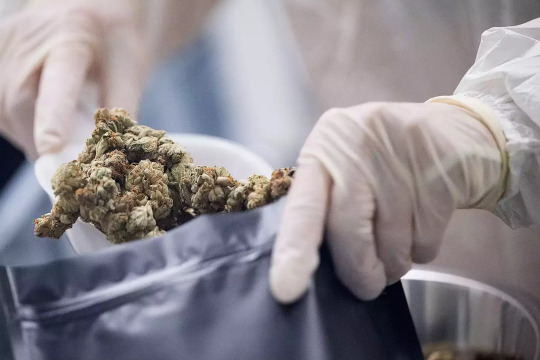
The state of Kentucky has legalized the use of medical marijuana. The bill received final passage on Thursday. Democratic Gov. Andy Beshear signed it into law Friday morning after a decade of failed attempts in the state legislature.
The news makes Kentucky at least the 38th state in the U.S. to legalize medical marijuana.
Now Indiana is surrounded by weed states. The encirclement is complete 😂
2. The Maryland House of Delegates voted Saturday to approve the Trans Health Equity Act
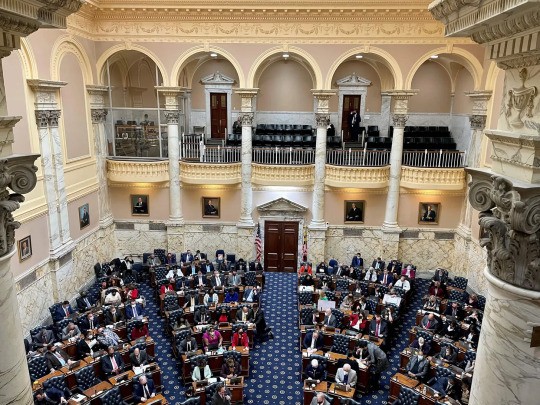
The Maryland House of Delegates voted Saturday to approve the Trans Health Equity Act — a bill that just a year ago disappeared from the chamber’s agenda ahead of a floor vote.
The bill would require Maryland Medicaid, beginning on Jan. 1, 2024, to provide coverage for additional gender-affirming treatments, which are currently disallowed in the state’s plan but commonly covered by private insurance. The expanded treatments include hormone therapy, hair alteration, voice therapy, physical alterations to the body, and fertility preservation.
3. FDA approves over-the-counter Narcan. Here's what it means
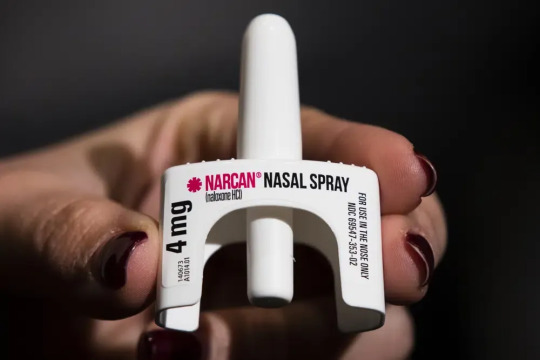
The approved nasal spray is the best-known form of naloxone. It can reverse overdoses of opioids, including street drugs such as heroin and fentanyl and prescription versions including oxycodone.
Making naloxone available more widely is seen as a key strategy to control the nationwide overdose crisis. Effects begin within two minutes when given intravenously, and within five minutes when injected into a muscle. The medicine can also be administered by spraying it into a person's nose.
4. Boston expands tuition-free community college program to all residents
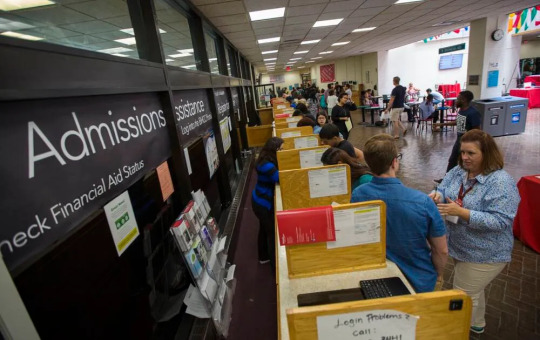
Boston has expanded its tuition-free community college program to include all city residents regardless of age, income or immigration status.
Starting this fall, any city resident will be eligible to pursue an associate’s degree or certificate at one of six partnering local institutions without paying to attend. The program also includes a $250 stipend for incidental expenses each semester for up to three years, and up to $2,500 of debt relief for students whose account balances are keeping them from re-enrolling.
5. First cheetah cubs born in India since extinction 70 years ago

India has welcomed the birth of four cheetah cubs - more than 70 years after the animals were declared officially extinct there.India's environment minister announced the good news, calling it a "momentous event".
The country has been trying to reintroduce the big cats for decades, and last year brought eight cheetahs over from Namibia as part of the plan. Another 12 cheetahs were brought to India from South Africa last month.
6. BBC education show in Afghanistan helps children banned from school

The BBC has launched a new education programme for children in Afghanistan who are banned from school.It is aimed at children aged 11 to 16, including girls whose secondary education has been stopped by the ruling Taliban.
The weekly programme is called Dars, which means lesson in Dari and Pashto, Afghanistan's official languages. It is hosted by BBC Afghan female journalists who were evacuated from Kabul during the 2021 Taliban takeover.
Each new weekly half-hour episode of Dars will air four times a day, Saturday to Friday, on the newly launched BBC News Afghanistan channel.
7. A Trans Creator Has Raised Over 1.5 Million for Trans Healthcare on TikTok Live

Transgender TikTokers are celebrating Trans Day of Visibility by raising over $1.5 million for gender-affirming care around the world.
Mercury Stardust — a DIY TikToker and trans advocate who calls herself the “Trans Handy Ma’am” — raised $120,000 last year in a livestream for the mutual aid nonprofit Point of Pride, which maintains funds for surgeries, hormone therapy, and free binders and gaffs. This year, Stardust and cohost Jory, a.k.a. AlluringSkull, set themselves a goal of raising $1 million in a planned 30-hour live stream…and then smashed that milestone less than six hours after starting the stream Thursday evening.
----
I have started a Youtube channel with wholesome videos I can find on the internet. Check it out :)
That's it for this week :)
This newsletter will always be free. If you liked this post you can support me with a small kofi donation:
Buy me a coffee ❤️
Also don’t forget to reblog
435 notes
·
View notes
Text
By Jessica Corbett
Common Dreams
March 20, 2024
"Trump has tried to walk back his support for Social Security and Medicare cuts," said the head of Social Security Works. "This budget is one of many reasons why no one should believe him."
Defenders of Social Security and Medicare on Wednesday swiftly criticized the biggest caucus of Republicans in the U.S. House of Representatives for putting out a budget proposal for fiscal year 2025 that takes aim at the crucial programs.
The 180-page "Fiscal Sanity to Save America" plan from the Republican Study Committee (RSC) follows the release of proposals from Democratic President Joe Biden and U.S. House Budget Committee Chair Jodey Arrington (R-Texas)—who is leading the fight to create a fiscal commission for the programs that critics call a "death panel" designed to force through cuts.
The RSC document features full sections on "Saving Medicare" and "Preventing Biden's Cuts to Social Security," which both push back on the president's recent comments calling out Republican attacks on the programs that serve seniors.
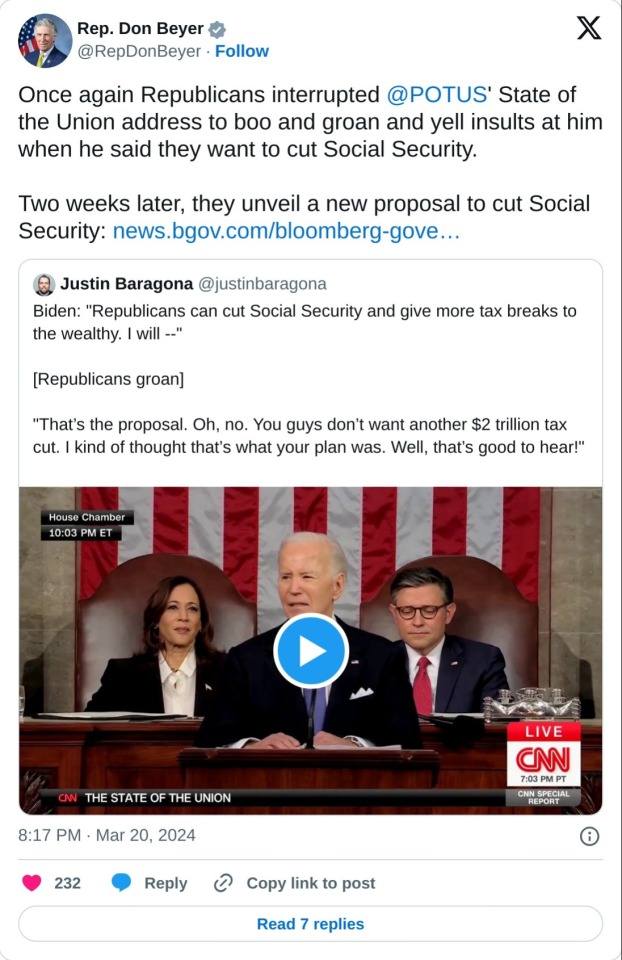
The caucus plan promotes premium support for Medicare Advantage plans administered by private health insurance providers as well as changes to payments made to teaching hospitals. For Social Security, the proposal calls for tying retirement age to rising life expectancy and cutting benefits for younger workers over certain income levels, including phasing out auxiliary benefits.
The document also claims that the caucus budget "would promote trust fund solvency by increasing payroll tax revenues through pro-growth tax reform, pro-growth energy policy that lifts wages, work requirements that move Americans from welfare to work, and regulatory reforms that increase economic growth."
In a lengthy Wednesday statement blasting the RSC budget, Social Security Works president Nancy Altman pointed out that last week, former President Donald Trump, the presumptive Republican nominee to face Biden in the November election, "toldCNBC that 'there's a lot you can do' to cut Social Security."
"Everyone who cares about the future of these vital earned benefits should vote accordingly in November."
"Now, congressional Republicans are confirming the party's support for cuts—to the tune of $1.5 trillion. They are also laying out some of those cuts," Altman said. "This budget would raise the retirement age, in line with prominent Republican influencer Ben Shapiro's recent comments that 'retirement itself is a stupid idea.' It would make annual cost-of-living increases stingier, so that benefits erode over time. It would slash middle-class benefits."
"Perhaps most insultingly, given the Republicans' claim to be the party of 'family values,' this budget would eliminate Social Security spousal benefits, as well as children's benefits, for middle-class families. That would punish women who take time out of the workforce to care for children and other loved ones," she continued. "This coming from a party that wants to take away women's reproductive rights!"
The caucus, chaired by Rep. Kevin Hern (R-Okla.), included 285 bills and initiatives from 192 members in its budget plan—among them are various proposals threatening abortion care, birth control, and in vitro fertilization (IVF) nationwide.
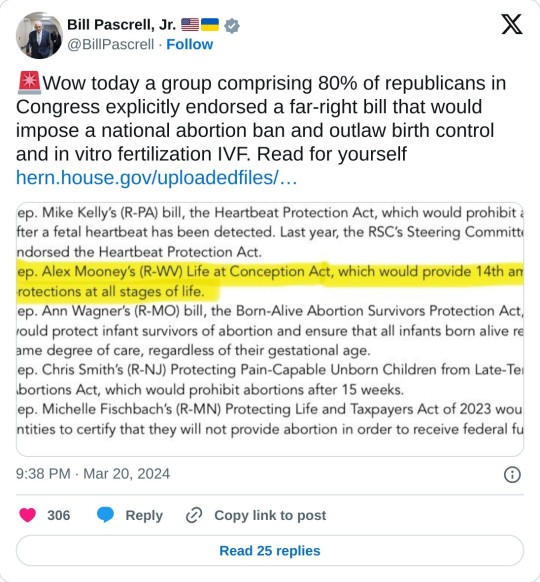
"The RSC budget would also take away Medicare's new power to negotiate lower prices on prescription drugs, putting more money into the pockets of the GOP's Big Pharma donors," Altman warned. "And it accelerates the privatization of Medicare, handing it over to private insurance companies who have a long history of ripping off the government and delaying and denying care to those who need it."
"In recent days, Trump has tried to walk back his support for Social Security and Medicare cuts," she noted. "This budget is one of many reasons why no one should believe him. The Republican Party is the party of cutting Social Security and Medicare, while giving tax handouts to billionaires."
"The Democratic Party is the party of expanding Social Security and Medicare, paid for by requiring the ultrawealthy to contribute their fair share," Altman added. "Everyone who cares about the future of these vital earned benefits should vote accordingly in November."
Biden campaign communications director Michael Tyler also targeted the Republican presidential candidate while slamming the RSC plan, saying that "Donald Trump's MAGA allies in Congress made it clear today: A vote for Trump is a vote to make the MAGA 2025 agenda of cutting Social Security, ripping away access to IVF, and banning abortion nationwide a hellish reality."
"While Trump and his allies push forward their extreme agenda, the American people are watching," Tyler added, suggesting that the RSC proposal will help motivate voters to give Biden and Vice President Kamala Harris four more years in the White House.
86 notes
·
View notes
Text
What Is The Cost Of CHIP Health Insurance?

The Children's Health Insurance Program (CHIP) provides low-cost health coverage to children in families that earn too much money to qualify for Medicaid but cannot afford private insurance. CHIP is a vital safety net for millions of children in the United States, ensuring they have access to essential medical services. Understanding the cost of CHIP health insurance involves examining various factors, including eligibility, premiums, copayments, and coverage benefits.
Eligibility for CHIP varies by state but generally extends to children from low-income families. In most states, children up to age 19 whose families earn up to 200% of the federal poverty level (FPL) are eligible for CHIP coverage. Some states have expanded CHIP eligibility to higher income levels or extended coverage to pregnant women. Additionally, eligibility criteria may consider factors such as citizenship status and residency.
One of the key aspects of the CHIP program that makes it attractive to eligible families is its affordability. CHIP is designed to be affordable for low-income families, with premiums and cost-sharing requirements kept minimal. Premiums for CHIP coverage typically range from zero to modest amounts, often significantly lower than private insurance premiums. Many states subsidize CHIP premiums to ensure they remain affordable for eligible families.
In states where premiums are required, they are usually based on a sliding scale tied to family income. Families with lower incomes may pay lower premiums or no premiums at all, while those with higher incomes may pay slightly higher premiums. This sliding scale helps ensure that CHIP remains accessible to families across different income levels.
Moreover, CHIP imposes cost-sharing measures such as copayments and deductibles, but these are generally much lower than those in private insurance plans. Copayments for services like doctor visits, prescription medications, and hospital stays are nominal, often ranging from a few dollars to no more than $50 per visit or service. Deductibles, if applicable, are also modest compared to private insurance plans, providing families with financial predictability and peace of mind.
CHIP coverage benefits are comprehensive and typically include essential services such as:
Preventive care: Regular check-ups, immunizations, and screenings to ensure children stay healthy and detect any health issues early.
Doctor visits: Access to primary care physicians and specialists for medical consultations and treatment.
Prescription medications: Coverage for necessary medications prescribed by healthcare providers.
Hospitalization: Coverage for inpatient hospital stays and related services.
Emergency services: Coverage for emergency room visits and urgent care services.
Dental and vision care: Basic dental and vision services, including check-ups, cleanings, and eyeglasses.
Mental health and substance abuse services: Coverage for mental health counseling, therapy, and treatment for substance abuse disorders.
By providing comprehensive coverage for essential healthcare services, CHIP ensures that children have access to the medical care they need to thrive. This coverage extends beyond physical health to encompass mental and dental health, addressing the holistic needs of children and promoting their overall well-being.
In addition to the direct financial costs of CHIP coverage, there are also indirect benefits that contribute to cost savings for families and society as a whole. By ensuring children have access to preventive care and early intervention services, CHIP helps prevent costly health complications and hospitalizations down the line. Healthy children are more likely to succeed academically and socially, reducing the burden on educational and social service systems.
Overall, the cost of CHIP health insurance is designed to be affordable and accessible for eligible families, with premiums and cost-sharing measures kept low. This affordability, coupled with comprehensive coverage benefits, ensures that children from low-income families can access the healthcare services they need to thrive and reach their full potential. As a cornerstone of the nation's healthcare safety net, CHIP plays a crucial role in promoting the health and well-being of millions of children across the United States.
0 notes
Text
What Is The Future Of CHIP Program?

The future of the CHIP program remains critical for ensuring accessible healthcare for low-income children. Ongoing support is essential for its continuation and potential expansion. Policymakers must prioritize the program to safeguard the health of vulnerable youth and address any emerging challenges, securing a sustained and effective future for CHIP.
0 notes
Text
"...[W]e must continue to challenge the societal arrangements that leads to preventable pain and suffering. Marriage can be quite beautiful and sacred, for example. Marriage can also privatize dependence: it encourages people to enter relationships for resources and benefits, like health care, savings, and tax deductions. I was nineteen years old when I got married, mostly informed by my faith tradition. I was also in love, but very poor, and marriage offered me a stability that I never had as a child. I was so lucky that the person I married was kind, thoughtful, and also very much trying to figure out his relationship to Christianity and his evolving manhood.
When we divorced nine years later and became friends and co-parents, I realized how the marital benefits I once aspire dot have did not make sense. I could remove him from my health insurance to account for the divorce, but I couldn't add any of my uninsured siblings, whom I would be related to forever. And our children had two options for insurance because they had parents who went to college and worked jobs that offered it, but independent contractors in my family did not have an option that wasn't a financial sacrifice.
If we focused on meeting the healthcare, employment, educational, and housing needs of people in society, then those who want to marry could more freely enter those relationships in their terms, and people who needed to escape because of violence could more easily leave without worrying what will happen if they get sick and need to see a doctor.
We should heed to calls for investment in the programs, opportunities, and laws that make everyone free and safe. Here too, universal basic income can help, allowing people to meet their basic needs and not rely on potentially sexually exploitative intimate relationships for income. Removing benefits from marriage accomplishes this, too. With universal health care, and other programs like free and quality childhood education, people vulnerable to violence have more free range to move, live, and practice healthy lifestyles."
-- Becoming Abolitionists: Police, Protests, and the Pursuit of Freedom by Derecka Purnell
#angel posts#angel reads#becoming abolitionists#derecka purnell#the more i read this book the better it gets tbh#every page she's talking about a new activist or abolitionist she's met#she's BUSY#and im googling the orgs here bc i wanna get more active too#but this passage made me think of the tradwife thing#people fail to realize that tying economic stability to marriage is so dangerous
94 notes
·
View notes
Text
☝️
Highly recommend. A glimpse into the right-wing network of conservative think tanks and non-profits working to promote a pro-business culture, weaken all social programs, and undermine democracy.
Everything from weakening child labor laws to writing Trump’s Project 2025, although the authors refused to use the term “Project 2025” in their description of it.
Republican politicians never come up with legislation on their own. All Republican policy is crafted and written by right-wing political associations and then handed to Republicans stooges to sign and introduce into Congress. It is this behind the scenes network of oligarch dark money funded think tanks that are waging war against us.
You protest individual Republican politicians and their policies but neglect the oligarchs like Koch, Walton, Crow, and DeVos that actually write those policies. Then you support those same oppressive oligarchs by buying Koch products, shopping at Walmart, and sending your kids to charter schools operated by DeVos.
Thousands of us have been calling for a boycott of Walmart since the 90’s but the majority refuse because it would be inconvenient. I don’t want to drive an extra few miles to the store or I don’t want to spend and extra dollar at another store. Common refrains whenever a boycott is broached. Walmart is the most obvious target because they are not diversified like other oligarch families. A short boycott would change their tune real fast.
You know what’s really inconvenient; black people being executed in the streets by cops and denied the right to vote. You know what else, trans people being eliminated and lgbt being stripped of legal rights as citizens. How about bounties being placed on women who have abortions and women who have to travel across country to have those abortions and often having lost the right yo safely return to their home state at all. Migrants being held in camps and being separated permanently from their children is also inconvenient as is the human trafficking of them. How about the re-introduction of child labor without parental consent being required. Maybe unions being busted, pensions and health insurance being stripped, minimum wage being reduced and full-time jobs arbitrarily being turned into part-time jobs. I could go on and on here.
STOP USING YOUR DOLLARS TO SUPPORT THE OLIGARCHS AND CORPORATIONS THAT OPPRESS YOU.
#Searles pharmaceutical#project 2025#vast right-wing conspiracy#Koch network#boycott Walmart#cato institute#federalist society#ALEC#Koch family oligarchs#Walton family oligarchs#Harlan Crow Neo-Nazi oligarch#Betsy DeVos oligarch#Leonard Leo#Mackinac Center#dark money#Conservative oligarchs creating a fascist America#RESIST#Citizens United#reproductive freedom#gun lobby#voter suppression#voter disenfranchisement#lgbt persecution#Black Lives Matter#republican assholes#Republican oligarchs#republican values#evangelical Taliban#Theocracy#Dominionism
37 notes
·
View notes
Text
"The Yukon is giving residents up to $1,300 a year for dental care bills that aren't covered by other forms of insurance.
The program, that started taking applications on Wednesday, covers all dental treatments that will relieve pain or infection, treat cavities and restore chewing function. Routine procedures, like dental cleanings, will also be covered.
Stephen Doyle, the Yukon's acting deputy minister of health, said the program should be able to help up to 8,000 Yukoners.
"We've already received a few applications," Doyle told CBC. "The intent is to get them processed as quickly as possible and get people ... seeing the dentist as soon as they can."
The program is open to Yukoners that have a territorial healthcare card, no other dental insurance plans and make less than $60,000 per year as an individual or less than $90,000 for individuals with two children. After that, the threshold increases with family size.
The Yukon already has a dental care program for children under 12. Any children that are not eligible for this program could be eligible for the territorial dental plan if their parents still meet the income bracket requirements.
People will have to re-apply each year to the program.
The government is committing $1.8 million towards the program. Doyle says that should be enough money for all 8,000 Yukoners who could be helped by the program, even if they max out their benefit."
Full article
Tagging: @politicsofcanada
#cdnpoli#canada#canadian politics#canadian news#canadian#yukon#yukon territory#dental care#dental#healthcare#dentalcare
302 notes
·
View notes